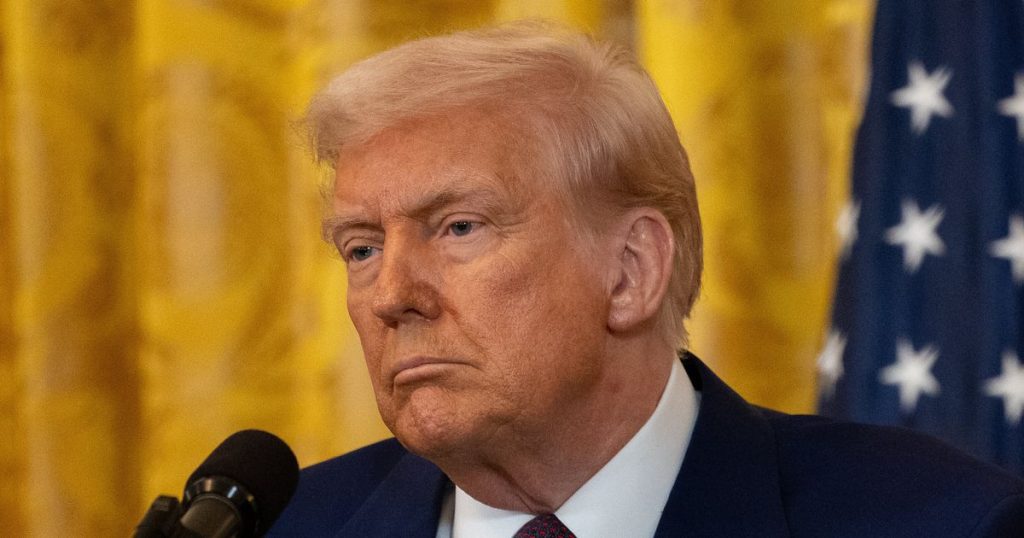President Donald Trump recently announced the implementation of reciprocal tariffs on various U.S. trade partners, sparking both curiosity and concern among economists and the public alike. At a press conference, when questioned about whether he would direct agencies to study the potential impact of these tariffs on domestic prices, Trump responded confidently, “No, there’s nothing to study. It’s gonna go well.” This response resonated with his earlier sentiments during the COVID-19 pandemic, where he often downplayed the severity of the virus, suggesting it would “go away.” A video clip of this moment on social media platform X gained significant traction, amassing over a million views and prompting a wave of critical reactions.
Trump’s tariff policy is rooted in his belief in a “fair trade” approach, aiming to counter what he perceives as unfair practices by top trading partners. In a recent move, he introduced a 25% tariff on goods from Canada and Mexico, and a 10% tariff on imports from China. This decision led to retaliatory measures from these nations, though the tariffs on Canada and Mexico have been temporarily paused for 30 days to allow for negotiations. The broader implications of these tariffs could extend to other countries globally, with the administration planning to adjust tariff levels based on what Trump deems unfair taxes and levies imposed by other nations.
Critics and economists have expressed concern over the potential consequences of this policy. They warn that such tariffs could exacerbate inflation and ignite a costly trade war, negatively impacting American consumers and businesses. The lack of interest in studying these effects has drawn sharp criticism, reminiscent of authoritarian tactics where information is controlled, and dissent is quashed. Observers have drawn parallels to George Orwell’s “1984,” suggesting a disconcerting shift in governance where transparency and accountability are eroded.
The response on social media was swift and critical. Many users expressed dismay at Trump’s dismissal of empirical evidence and research. One commenter likened his approach to a form of mass hypnosis, while others highlighted the importance of informed decision-making in governance. These reactions underscore a broader anxiety about the erosion of trust in governmental institutions and the reliance on unchecked executive authority.
Experts such as Tahra Jirari, Director of Economic Analysis at the Chamber of Progress, have highlighted the potential fallout from this approach. Jirari emphasizes the need for a comprehensive understanding of the impact of tariffs on the economy, consumers, and businesses. Without such studies, the administration risks implementing policies that could lead to unintended and harmful consequences, further entrenching inequality and stifling economic growth.
In conclusion, Trump’s tariff policy and his dismissal of the need for impact assessments have ignited a heated debate about governance, transparency, and economic strategy. While the administration remains confident in the merits of its approach, the broader public and expert community remain skeptical. As the situation unfolds, the impact of these tariffs and the government’s response to criticism will be crucial in determining the economic and political landscape of the United States in the coming months. The hope is that informed dialogue and evidence-based policies will prevail, ensuring that decisions are made in the best interest of all Americans.









